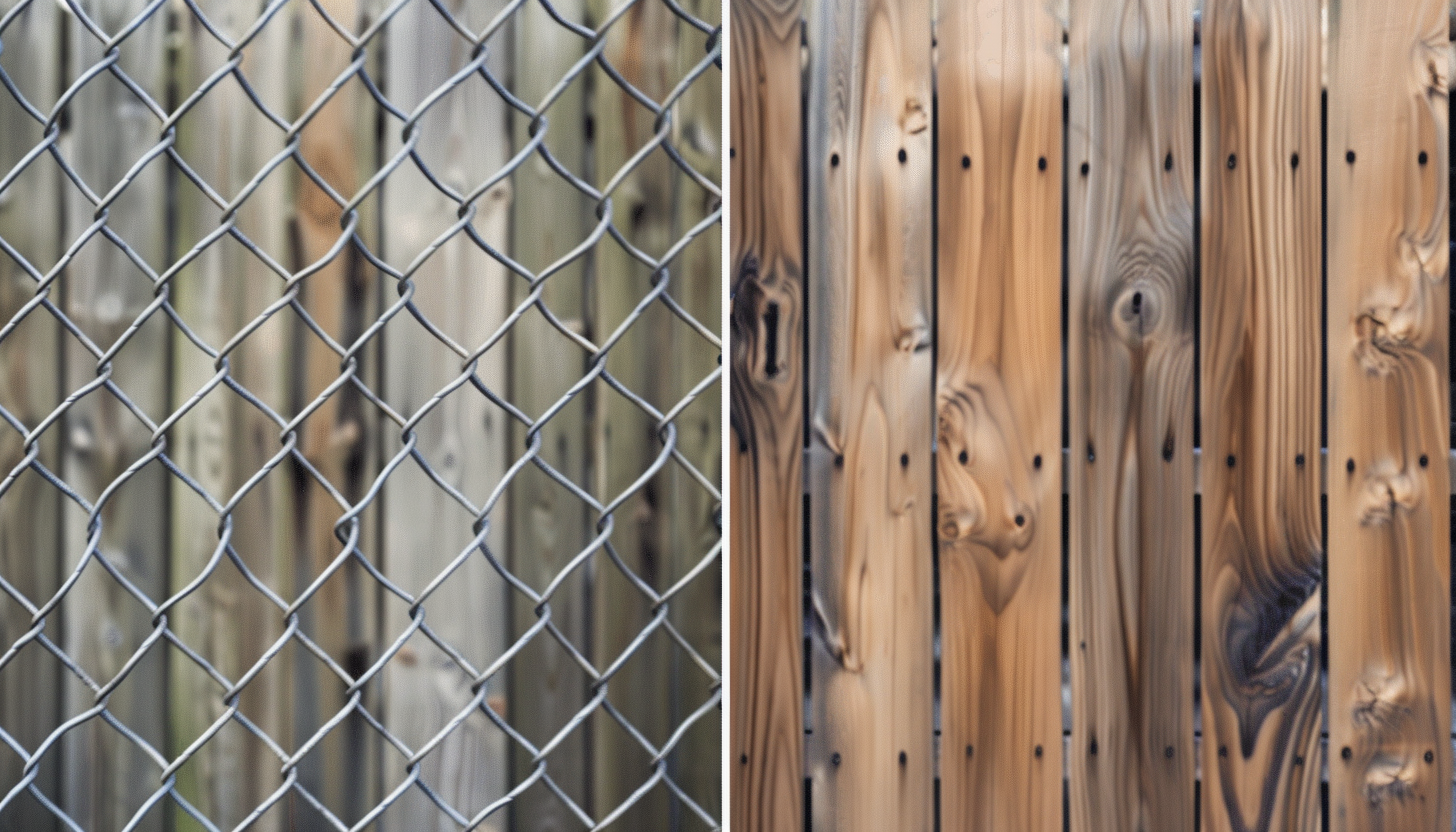
Wooden Fence Vs. Chain Link: Which is Cheaper in Colorado?
Fencing material plays a huge role in the aesthetics, functionality, and cost of your fence. Wood fences offer natural beauty and privacy, while chain-link fences are valued for their durability and cost-effectiveness.
Like anything else, the cost of materials and labor will differ depending on where you live. As expert fencing contractors in Colorado, we’ve put this blog together to help you understand the costs associated with these two options in Colorado.
The Short Answer: How Much do Chain-Link and Wooden Fences Cost in Colorado?
Chain link fences are usually more budget-friendly, ranging from $9 to $30 per linear foot, including installation, while wooden fences typically cost between $13 and $27 per linear foot. However, wooden fences might offer greater long-term value through increased property appeal and privacy despite higher maintenance needs.
Initial Costs of Wood vs. Chain-Link Fences
Chain-link fences typically present a more economical initial investment. Costs can range from $9 to $30 per linear foot, influenced by the quality of materials and the specifics of the project, such as fence height and total length. The installation of chain-link fences is generally straightforward, often resulting in lower labor costs.
On the other hand, wooden fences carry a higher initial cost, averaging between $13 and $27 per linear foot. This variance depends largely on the type of wood chosen—common options in Colorado include cedar, pine, and redwood, each with different price points. Installation of wooden fences is more labor-intensive, particularly if the design includes custom elements like varying heights or decorative finishes. All of these factors will contribute to the overall cost.
Long-Term Costs and Maintenance
Long-term costs and maintenance are critical considerations. Wooden fences, much like wooden decks, require ongoing maintenance that can add up. Every few years, wood may need to be treated with stains or sealants to protect against moisture, UV damage, and insect infestation. Additionally, wood is susceptible to weather-related damages such as rotting, warping, or splitting, which might necessitate costly repairs or even partial replacement.
Chain-link fences are celebrated for their durability and low maintenance needs. They do not require staining or sealing and are resistant to pests and rot. Occasional cleaning and minor repairs, such as fixing a damaged link or post, may be required, especially if the fence is damaged by severe weather or accidents. However, these repairs are generally less frequent and less costly compared to those for wood fences.
The practicality of chain-link fences in terms of long-term maintenance and cost-effectiveness is a significant advantage for many Colorado homeowners. Still, for those looking for privacy, a wooden fence is unmatched.
Aesthetic and Functional Considerations
A fence's aesthetic appeal can significantly influence a property's overall look and feel. Wood fences are renowned for their natural beauty and ability to blend seamlessly with outdoor environments. They provide a traditional look that can enhance a home's curb appeal, potentially increasing its market value.
Due to their solid construction, wood fences offer excellent privacy, making them a popular choice for residential areas where seclusion is desired. Additionally, wooden fences can be customized in height and design to meet specific security needs or aesthetic preferences, although these modifications can increase costs.
Chain link fences, while not as pretty, offer practical benefits that are important for many homeowners. They provide durable boundaries that secure properties effectively, making them suitable for enclosing large areas such as backyards, commercial properties, or industrial areas. The visibility through chain-link fences benefits those requiring security without obstructing your view.
Environmental Impact and Sustainability
Many people in Colorado are passionate about reducing their carbon footprint, meaning environmental impact may be another decision point in fencing material selection. Chain-link fences are a good choice for reducing your carbon footprint due to their long lifespan and minimal maintenance requirements. They are made from galvanized steel, which is durable and recyclable, contributing to their eco-friendliness. When a chain-link fence reaches the end of its useful life, the materials can be recycled, reducing landfill waste.
On the other hand, wood fences are made from a natural, renewable resource. However, the sustainability of wood fences depends on the source of the timber. Wood such as cedar and redwood are often preferred for their durability and natural resistance to decay. Still, you’ll want to choose wood sourced from sustainably managed forests if you want to minimize the environmental impact. Regular maintenance, including painting and staining, can also have environmental implications due to the chemicals used.
Final Thoughts on Wood and Chain-Link Fence Cost in Colorado
Choosing the right type of fence for your property in Colorado involves carefully evaluating both initial and ongoing costs, as well as aesthetic preferences and functional requirements. While initially more expensive, wood fences are generally considered more aesthetically pleasing and do more to protect your privacy, potentially increasing property value. On the other hand, chain-link fences offer durability and low maintenance at a lower cost, though they may lack the visual appeal of wood fences.
When making this decision, you should consider your long-term goals, the specific needs of your property, and your budget. Consulting with fencing professionals like us can provide further insights and help ensure that the chosen fence meets your practical needs and design preferences.
